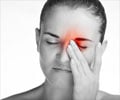The risk of migraine is most apparent in women during the later stage of perimenopause. This is a time when they first begin skipping their menstrual cycles and experience low levels of estrogen.

‘The risk of migraine is most apparent in women during the later stage of perimenopause. This is a stage when they first begin skipping their menstrual cycles and experience low levels of estrogen.’





"The risk for high frequency headache, or more than 10 days with headache per month, increased by 60% in middle-aged women with migraine during the perimenopause - the transitional period into menopause marked by irregular menstrual cycles - as compared to normally cycling women," said lead author Vincent Martin, professor at University Of Cincinnati in Ohio, US. The menopausal years include both the perimenopause and menopause. Menopause begins when women have not had a menstrual period for one year. Symptoms such as hot flashes, irritability, depression and insomnia are common during both.
"Changes in female hormones such as estrogen and progesterone that occur during the perimenopause might trigger increased headaches during this time," noted Richard Lipton, professor at Albert Einstein College of Medicine in US.
Women who participated in the study also reported that high frequency headache increased by 76% during menopause, the findings showed.
Researchers identified the group of 3,664 women aged 35 to 65 who experienced migraine before and during their menopausal years.
Advertisement
Based on the characteristics of their menstrual cycles they were placed into one of three groups: pre-menopause (normally cycling), perimenopause (irregularly cycling) and menopause (no cycling).
Advertisement
The findings were published online in Headache: The Journal of Head and Face Pain, a publication of the American Headache Society.
Source-IANS














